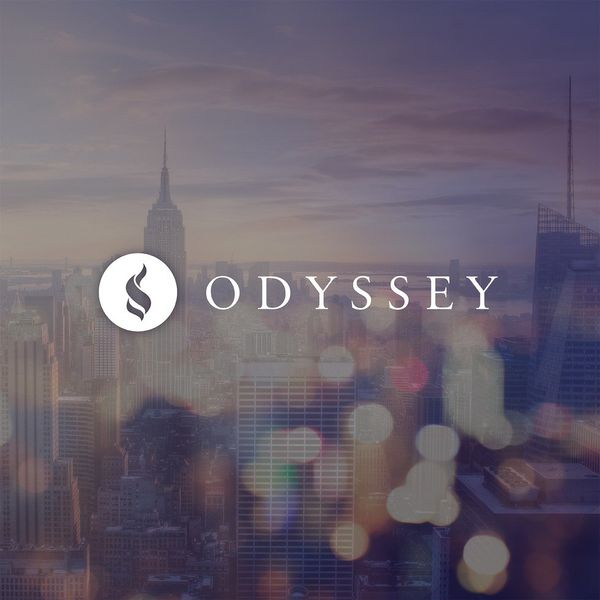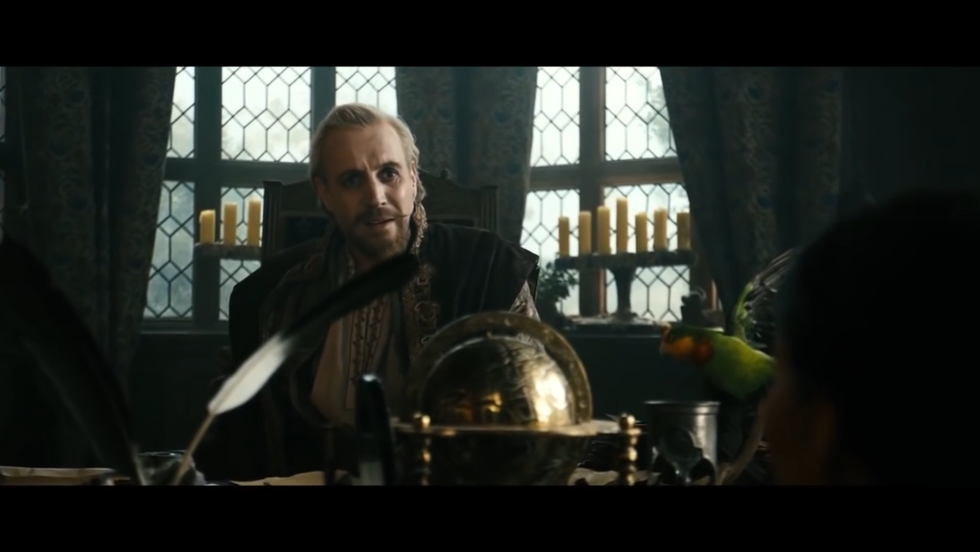There are two people in my community who wrote about why they write. After writing for "Millennials of New Jersey" for a month, I would like to share my own reasons. Here is what motivates me, as well as how I want to apply my aspirations to my writing.
Concurrently with writing, I also enjoy the thrill of taking unorganized matter and reshaping them into my own arrangement. Along with writing, I reshape jumbled paragraphs, (often separating sentences and putting them in paragraphs with a similar subject,) and materialize them into a cohesive essay or short story. There is also thrill in making transitioning sentences at the beginning and ending of a paragraph, which comes with organization.
I also keep in mind word choice, especially since it was instilled in me by my English Composition instructor at Brookdale to avoid colloquial phrases and generalities. Although such techniques can be familiarized with anyone reading, it would not be acceptable of me to write such words in both academic and creative situations. This has allowed me to expand my vocabulary and see which ones applied to any specific context. I have found that such restrictions can be liberating, as paradoxical as it seems. In the case of the words, "Why I Chose To Write," I apply that phrase to writing in general as opposed to writing just for "Odyssey." While the other writer has brought up her reasons rooted in childhood, I try to talk about all times of my life.
Trying to figure out what to write, in terms of a narrowed research topic, involves reading articles on what I hope to write about. As I read the parts that interest me, suddenly the topic and its supporting points I want to write about become more apparent. As a former History major, I developed this method of expanding those parts into an essay. If I'm looking for a specific word in a book, I look for it in the index and see how many pages it appears in.
Like coming up with a topic for research essays, I find inspiration whenever I read literature, watch a film, listen to music, or recall personal experience. The adventures and dramas are usually played out in my imagination without a cohesive story. It is only when I bring the fingertip to the keyboard or the pen to paper that I scribe the story and the characters. When I was little, it was video games that inspired my fiction. I can remember writing stories of Harry Potter-inspired characters within a setting modeled after Banjo-Kazooie and Super Mario 64. It was not the plots of those two games that I paid attention to, but the mechanism of jumping through paintings, into a treasure chest, through a pipe, and inside a sunken ship into entire worlds which fascinated me.
While I do have the superfluous reasons for writing, I also have my more material reasons as well. I want to receive renown and prosperity. I was introduced to "The Odyssey Online" through a fellow student at Monmouth University, who used to be a Content Creator; as well as another student, who has written her articles about commemorating Carrie Fisher and managing anxiety. This reason also led me to eventually join "Millennials of New Jersey" as a Content Creator.
Although I was taught that Wikipedia is an unreliable source and should not be used as formal citation, I found that it can be a gateway to more reliable forms of information, primarily in the External Links sections. I am also grateful to have the privilege of attending Monmouth University where not only do I have access to the databases, but also the physically bound library books in the well-known Murray & Leona Guggenheim Library.
I also intend to write blogs; with one for general aesthetics (film, literature, music) and the other for science (linguistics). I do not want to hawk them on this article, but I hope that they can be a foot in the door for some opportunity. I can remember attending an English major conference when I was at Brookdale Community College and one of the panels had to do with journalism and how starting a blog is one way of getting into that field.
When I am writing a research article, such as the ones on the Gullah and Powhatan languages, I lose myself in the research and end up having a 2900-worded nerdgasm. This only happens when I am passionate about the subject I am writing about. One of my passions is endangered languages. One reason is because of the fascinating phenomenon of people shaping their identities around a world of information in the face of imperialism and capitalism, whether it would be indigenous or creole; even going so far as to name in their own language either their children or themselves. Another reason comes from personal empathy. As someone who struggled with social problems growing up and continues to struggle, I can understand people trying to reclaim their means of communication when I have spent my whole life reclaiming my own.
My writing also helped me live through hurtful moments in my life. Even today, I continue to struggle with the amorphous afflictions of melancholy, worthlessness, misery, and paranoia that have made my foresight into the future bleaker. My writing styles, settings, characters, and word choice enabled me to see such beauty in such ugliness. In that way, I make these problems work for me, not against me. Whenever I am tasked with a terrible experience, I always examine it and come to an almost-sociopathic conclusion "How can this benefit my writing?"
My problems becoming my benefits is another paradox. I can only describe such an idea in Aldous Huxley's Those Barren Leaves. After remembering her deceased cousin in the middle of a dinner, Miss Thriplow was described as:
"...proud to be able to suffer so much; she encouraged her suffering...Mingled with her grief there was a certain sense of satisfaction. After all, this had happened quite by itself, of its own accord, and spontaneously. She had always told people that she was sensitive, had a deep and quivering heart. This was a proof. Nobody knew how much she suffered, underneath. How could people guess what lay behind her gaiety?...Her laughter, her little railleries were the mask that hid from the outside world what was in her soul; they were her armour against a probing and wounding curiosity."
She then wants to write a short story with the experience as inspiration. It's also on the part of a great author to instill the reader with empathy. Becoming a writer has been a dream since childhood. I want to be an old famous author rummaging through packages in the mail and finding all of my written work bound into volumes upon volumes.
By writing, I am following the footsteps of the authors who inspired me: Joseph Conrad, Frank Herbert, Aldous Huxley, George R. R. Martin, and Ayn Rand; as well as the authors who inspired them, such as F. Scott Fitzgerald, Jack Vance, H. P. Lovecraft, H. G. Wells, etc.; as well as the authors who inspired those inspirations; and on and on. Not only am I inspired by these authors' characters, settings, and themes, but also their writing style, whether it would be Fitzgerald's one-liner dialogue or Martin's wittiness.
My protagonists are my Charons. For a price, we travel with them down the River Styx and into the bleak, dreary underworld. To paraphrase George R. R. Martin, he said in interviews that:
"All of us have it in us to be angels; and all of us have it in us to be monsters."
He made it a point to me that human morality is very complex. That quote and reading the "A Song of Ice and Fire" series was what inspired me to write my point-of-view characters with Martinian greyness.
I am also following his advice on becoming a writer. I have yet to get a short story published in a literary magazine. Even though the short story that I wrote, edited, did research for, and revised for a month is yet to be accepted by any one magazine, I still pursue it. Either I would find a niche market for hard fantasy or I change my story to make it more speculative. That is also what makes short story writing fascinating; for it allows me to adapt to whatever market I end up in and forces me to either go beyond my imagination or compensate for lack of it. If I want to submit to a magazine that is based on the Weird Western genre, then I'll push the limits of how I originally conceived the Wild West and immerse myself in the research in order to provide believability.
When I was a boy, I always imagined Heaven as having my own little cloud-estate where I would write quadrillions of pages. If my profession involves writing, I am already in Heaven. But even if the prospect is not present, I still have that urge to continue writing.





















